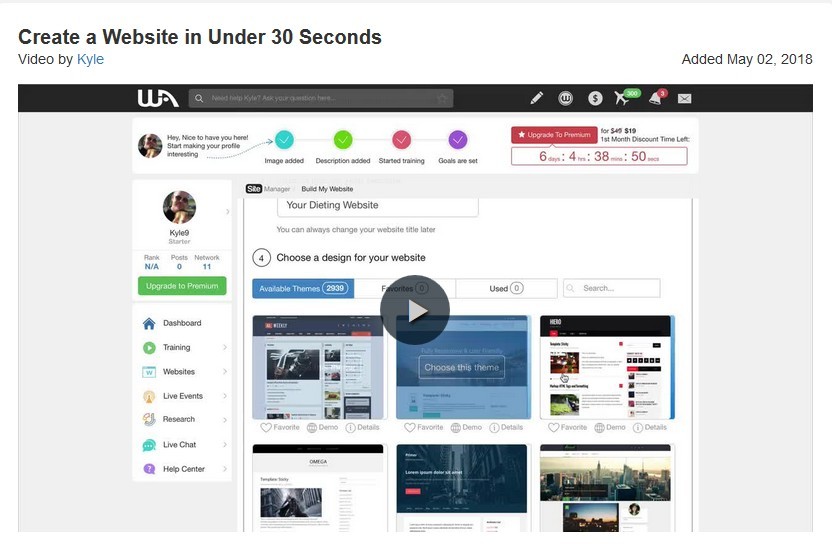What is an interpreter? Is becoming an interpreter a good career choice?
An interpreter is a person who translates a conversation from one language to another language orally. The conversation can be through medicine, law, every day business transactions, conferences, and others.

However, being an interpreter is not only about knowing multiple languages. It includes the understanding of the culture and the little nuances of the people. In the process of being an interpreter, he or she is in tune with his or her listening skill, interacts well with others and has the ability to carry oneself in a calm and neutral manner at any situation.
Why Should I Be an Interpreter?
The electronic age has brought us the internet and brought the world closer to our reach through news, media, and digital communication. More people are now traveling and re-locating all over the world. Sometimes the relocation is legal and other times it is illegal. Language barriers continue to exist everywhere. The demand for many languages has increased over the years including the popular language Spanish.
I did not realize how popular language interpreting was until I was solicited by a Healthcare company for my service as a Vietnamese Interpreter. The company was in desperate need of a Vietnamese interpreter. They were willing to give me a try because my resume had Vietnamese as my second language.
I find being an interpreter is exhilarating. Even though I repeat what is being said in another language, I do feel I am making a difference. I often notice the English Learners’ eyes light up because someone finally understands them and vice versa. I can appreciate how it feels to be understood. As an interpreter, we fill in the communication gap.
Do you know multiple languages? Is English your second language? Do you enjoy the interactions with others and constantly finding ways to make a difference in the community? Do you like to learn and always looking for change? If your answers are yes to most of these questions, you may want to read further.
What is Required?
As an interpreter, you will need to know at least a second language, being an excellent communicator with an ability to listen, being able to have confidence in self, and being open to continuing education. As mentioned earlier above, fluent in speaking multiple languages alone may not be enough. Knowing a second language does not make you an automatic interpreter or a translator. By the way did you know that being a translator is not the same as being an interpreter? A translator is a person who translates written documents while an interpreter translates verbal conversations. Sorry I digress a little there.
Communication skill is very helpful in interpreting. The eye contact and your voice can go a long way when delivering your message. When interpreting over the phone, the eye contact is not available but people do know when you are smiling or sense your mood based on your voice.

The ability to listen is crucial. As an interpreter, you want to be in a blank state with minimized to no judgment or biases so that you can interpret the message as faithfully and accurately as possible. When you are in the listening of others, you can relate with them more.
Self confident is another key of being an interpreter. The ability to understand who you are and what you are capable of. Do not be afraid to speak up and say “I am not familiar with that word or phrase. Can you please explain?” Have the confidence in your own ability. Being willing and open to learn, make mistakes, and expand. When we stop learning, we stop growing.
An education such as a degree in communication or business will definitely help. However, if you don’t have a degree, you can attend formal training for students who wants to become interpreters at colleges or universities. Community colleges and universities sometimes offer programs specifically focusing on interpreting.
I almost forgot to mention about certification. Do we need to be certified to be an interpreter? At this time, some states such as Washington or California require certification while other states such as Florida do not require. It also depends on what type of interpreting jobs you are interested in.
What are different types of Interpreting Jobs?
There are multiple jobs for interpreters.

You can work from your own home as an interpreter over the phone or if you love to travel you can be interpreter on site for healthcare, legal, government, and businesses. Healthcare can be hospitals, dentistry, vision, emergency care, 911, etc. Legal can be for court, attorney offices, insurance claims, etc. Government can be schools, immigration, social housing, welfare services, international liaison, etc. Businesses can be business meetings, business negotiations, investor meetings, conferences, and many others.
It is your choice on how far you want to take your interpreting career. You can make it part-time or you can pursue it as a full time. Please check out my article “Language Jobs – What Do I Need to Know and How Do I get Started?” for what is expected of an Interpreter.
Currently, I am committed to create a career as a Vietnamese interpreter. It is my full time job. When I am not traveling to location for interpreting, I am at home interpreting over the phone. My present goal is to become a certified court interpreter. Being a certified court interpreter is not required at this time in the state of Florida. However,

I have a feeling it will be in the near future. Right now getting the certification is primarily for my own peace of mind.
Volunteering is a great way to get exposure of first-hand experience. Hospitals and other organizations provide opportunities for students and/or new interpreters to volunteer their services. Keep on practicing.
The Good and The Bad
As you probably know, there are the good and the bad to everything. Here is my take on the good and the bad.
Good
1. Be the bridge of communication between two languages or more
2. Get paid well for making a difference
3. Be your own boss, make your own hours and opportunity to work from home
4. Spanish interpreters often have staff positions available at the court house, hospitals, and others
5. Constantly challenging my mind to stay sharp and active.
Bad
1. Interpreters are not qualified to give legal or medical advice to clients, keep clear from judgment, and interpret as accurately as possible to original message. Only interpreting. Sometimes your moral or religious belief may differ from the scenario that you are interpreting. If you cannot be neutral, it is best that you excuse yourself and step away before creating any possible conflicts.
2. If you do not like to drive or travel, interpreting at locations may not be for you. However, you can still find interpreting jobs over the phone. With the internet technology, you can now also interpret via video conference without having to travel.
3. Take on responsibility in a stressful environment. Interpret as accurately as possible and when possible. A word that is missed interpreted can sometimes be the determination of life or death.
Conclusion
Similar to many other jobs if you want to do well as an interpreter, you would want to be reliable, dependable, and available. For me being an interpreter is rewarding and exciting. In general whenever I completed an onsite interpreting assignment, I felt alive and refreshed. I walked away feeling that I was making a difference. At the same, I am constantly learning and evolving. Learning new words or phrases in legal, medical, or social terms keep me on my toes continuously.
There were times when I doubt myself and the feeling of inadequate kicks in especially when I make a mistake. It is not uncommon to feel this way. The best way to deal with the situation is to admit the mistake and move forward. Be honest to self and others. It is a humbling experience. Keep practicing and participating in learning, reading, and speaking. The skills can be learned and tune in over time with experience.
As the world evolves and more people relocate, being an interpreter continues to become a popular career choice. Although translation software such as Google translate are available for free, we still need a real person to translate or interpret.
At this time, most languages can not be direct translate from one language to another. There are also slang phrases, social and culture cues that cannot be directly translated. I often test Google Translate using Vietnamese translations. Sometimes it works while other times it did not. I rely on physical dictionaries, other people as well as my own knowledge. The translation software still have a long way to go.
I hope this article has been useful for you regard interpreters. I love to hear from you and your thoughts. Please leave your comments and questions below.





2 thoughts on “What is an Interpreter – Can It Be a Career choice?”
Hi,
I agree the internet has made it easy for people to transform their skills into a home based or travel based business. Having a laptop as a storefront or a virtual corporation is a big motivation for goal oriented individuals.
I think it’s great that you have figured out how to use your translation skills as an online business. And with the world becoming so international because of technology, it’s a great niche for you and many others with similar skills.
Great article,
Wadud
Thank you, Wadud for leaving me a note. I appreciate your thoughts. It is a wonderful feeling to find something I am passionate about, being able to make a living from it, and sharing my passion with others. Thank you again for stopping by and wishing you the best with all you do in life.
Ha —